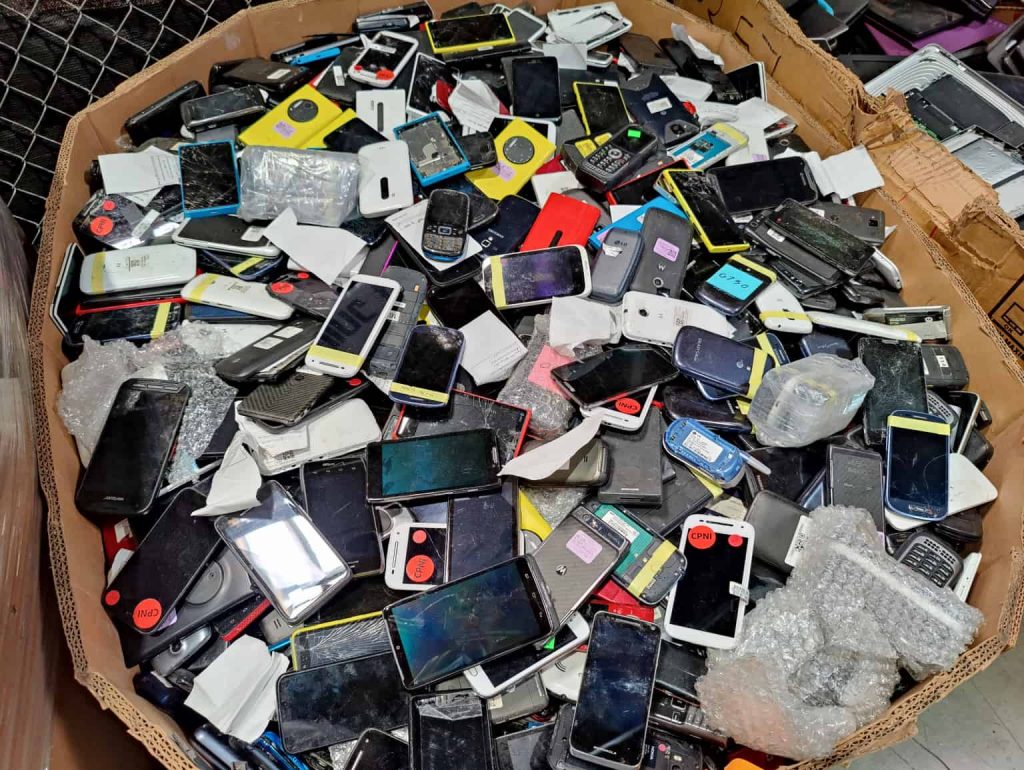An average person today owns as many as three or more devices. Have you ever wondered what happens to these gadgets after they stop working? What do people do to their older devices?
What does e-waste really mean?
Electronic waste, commonly known as e-waste, includes all electrical and electronic equipment and materials discarded by users. These may include your smartphone, laptop, tablet, TV or any home electronics. By far, the best ways to get rid of e-waste include resale, reuse and recycling. Unfortunately, most of the world’s e-waste ends up in landfills along with other types of solid waste. As it turns out, this is one of the biggest dilemmas facing our society.
The E-Waste Disaster
The truth is that many people discard their phones by throwing them in the trash. Most people are unaware of the consequences of their actions. Throwing your e-waste in the trash can cause a lot of problems for the environment. When e-waste is exposed to sunlight, several toxic gases are released into the atmosphere and mix with the air we breathe.
How E-Waste Decomposition impacts the soil?
After you toss out your electronic gadgets, they end up getting dumped in the landfill. E-waste can take up to a millennium to disintegrate and decompose. Meanwhile, during its decomposition period, it can cause long-lasting harmful impacts to our ecosystem.
When these electronic gadgets start decomposing, they release poisonous toxic substances into the ground of the landfills. This damages the plants and trees that get their nutrients from the soil.
Moreover, a portion of these toxic substances include lead from circuit sheets and lithium from batteries, which can cause brain damage. When these substances enter the soil and are absorbed by plants, it can very likely make it to our tables.
How E-Waste Decomposition Pollutes Groundwater?
Inappropriate e-waste disposal can lead to poisonous and toxic substances entering the Groundwater. These toxins can include cadmium, lead, and mercury, which are very dangerous to human health.
This groundwater flows into streams, lakes, and oceans, which are the primary sources of water for all living beings. When we use this contaminated water, we are at risk to serious health hazards such as gene mutation. Moreover, the consumption of contaminated water can cause cancer, damage the immune system, and disrupt the reproductive organs.
How E-Waste Decomposition contributes to Air Pollution
Burning of e-waste prevents them from ending up in landfills. However, these electronic devices emit toxic gasses upon burning that disrupt our atmosphere and ecosystem. Even though burning and incinerating electronics can appear to be a good idea, most people don’t realize how dangerous it is to us humans and to our environment.
Metals, plastic and glass are the basic components of most electronic gadgets. Several harmful toxins are released into the air upon the incineration of electronic gadgets. These toxins can include CO3 and other greenhouse gasses that increase the rate of ozone layer depletion. The ozone depletion is the main reason behind global warming and rapid climate change.
E-Waste Decomposition Contributes to Marine Pollution
Most E-Waste will eventually make its way to bodies of water such as the oceans and rivers. This is because electronic devices are non-biodegradable and filling up landfills reduces the area of land for people to thrive on. Dumping e-waste into the marine system can seriously injure and harm the life within it causing a disbalance in the ecosystem.
Why should you recycle your electronic gadgets?
There are many valuable and precious metals in our electronics, even gold. We can liquefy and recover these metals to put them to good use. Adding to that, we are technically saving the planet’s ecosystem and environment. If most of the Americans start reusing and recycling their electronics rather than tossing them out each year, they could save sufficient energy to supply power and electricity to 24,000 homes.
What Does the US Law Say about E-Waste?
The law: In some states like California and New York, it’s illegal to discard electronics gadgets by throwing them away in trash cans. We don’t have any specified federal regulations for the recycling of domestic electronic waste at the consumer level. However, various state laws may apply when it comes to e-waste disposal by users. To be safe, it’s best to ensure that your e-waste goes into the right hands for legal compliant recycling and reuse. Gizmogo offers a fast, efficient, and safe way to sell your old electronic devices and earn cash for them.
Why Recycling and Selling Your E-waste Make Sense?
Your old smartphone is probably functional enough to work for a little longer. Before tossing it out, consider if you can sell it and make some money. This will help you give your older gadgets a second life and perhaps someone else the privilege to use one of these devices.
Make Some Easy Cash
Some organizations and businesses permit you to exchange your older gadget for a brand new or slightly used one. They also pay you for selling them your old used phone. Doing this can help you save a few bucks or earn some money.
You can effortlessly help save the planet if you choose to recycle your e-waste rather than dumping it. This action of yours can help reduce global warming and other hazardous issues.


